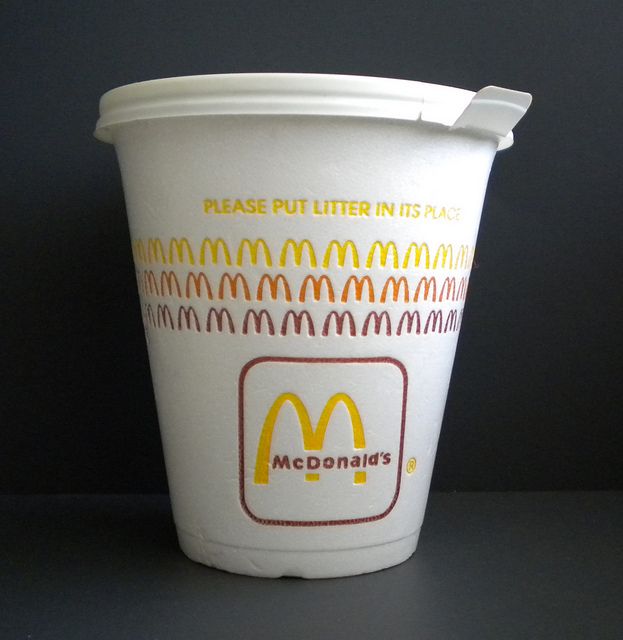
It's May, and that means only one thing to all men and women of good will: National Beverage Day on the sixth of this month! We all love a refreshing beverage, but how much do we really know about them? If you're thirsty for knowledge, take a deep, satisfying swig of Jeopardy!'s Ken Jennings, who will be debunking drink-related disinformation all month. As Alexander Pope once said, "A little learning is a dangerous thing, / Drink deep, or taste not the Pierian spring"!
The Debunker: Was the Famous McDonald's "Hot Coffee" Lawsuit Frivolous?
It's Exhibit A for people who blather on about scheming lawyers, credulous bleeding-heart juries, and the damage done to this country by frivolous lawsuits. In 1992, a 79-year-old woman named Stella Liebeck ordered a cup of coffee from a McDonald's drive-thru, and then proceeded to spill it all over herself after she'd driven away. Despite the fact that she'd spilled the coffee on herself, through no fault of McDonald's employees, a jury awarded her $2.86 million. What an injustice! What happened to the tough, self-sufficient Americans who tamed the frontier, am I right? When did we become such sissified, litigious snowflakes?

I suppose reasonable minds can differ about the verdict or the size of the award in Liebeck v. McDonald's Restaurants, but the popular idea of Liebeck's case as "the poster child of excessive lawsuits," as ABC News once said, is generally based on an inaccurate memory of the facts of the case, and an incomplete knowledge of the legal arguments made at the civil trial. For one thing, Liebeck wasn't at the wheel when the coffee spilled (her grandson was) and the car wasn't in motion (they'd pulled into a parking spot). Most importantly, the injuries weren't the trivial boo-boo you might imagine. Liebeck suffered third-degree burns on sixteen percent of her body, went into immediate shock, and received multiple skin grafts during a week of hospitalization. The wounds left her disabled for two years, and at the time of her death twelve years later she had never fully recovered.
Despite all that, when Liebeck's lawyers approached McDonald's seeking nothing more than compensation for actual medical expenses and loss of income, a total of $20,000, the burger chain offered only $800. No one contested that Liebeck's spill was the immediate cause of her own injuries, but the trial revealed a couple of unflattering facts about McDonald's that still seem convincing today to me, not just some random wide-eyed New Mexico juror but an actual certified Jeopardy! contestant. First, McDonald's had spent half a million dollars in the previous decade to settle more than 700 other cases from burn victims. Second, despite their legal troubles, the chain still required franchises to keep their coffee above 180º F, substantially higher than a home-brewed cup. (This was an attempt to cater to drive-thru customers who wouldn't be drinking their coffee until much later, as well as to hide the not-so-great quality of McDonald's coffee.) The punitive damages awarded by the jury were certainly more than Liebeck sought, but they appear to have had the effect intended by the jury: unlike the previous 700 cases, this one got McDonald's to lower the temperature of its coffee.
Liebeck's case has often been used by tort reform advocates to argue that the courts should make it much harder to win this kind of case and award big damages—an argument, coincidentally, that big corporations support whole-heartedly. At least a 2011 HBO documentary on the issue, Hot Coffee, did much to set the record straight about Liebeck's case. Nowadays, noting that her lawsuit wasn't groundless is no longer such a scaldingly hot take.
Quick Quiz: The controversial and R-rated Hot Coffee mod was a mini-game in the seventh installment of what video game franchise?
Ken Jennings is the author of eleven books, most recently his Junior Genius Guides, Because I Said So!, and Maphead. He's also the proud owner of an underwhelming Bag o' Crap. Follow him at ken-jennings.com or on Twitter as @KenJennings.
